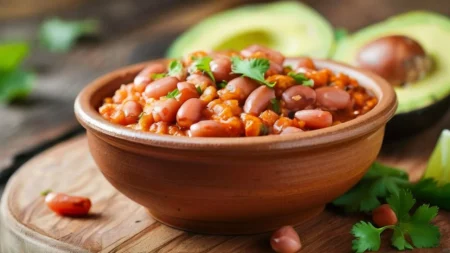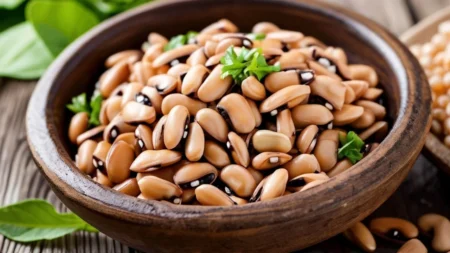Welcoming a new baby is an exciting and life-changing experience, but it can also bring about significant changes to your body. After pregnancy, many women struggle to regain their postpartum weight loss and pre-baby shape. This article provides effective tips and strategies to help you manage your weight in a healthy and sustainable way during the postpartum period.
Navigating the journey of losing baby weight can be challenging, but with the right approach, you can achieve your postpartum fitness goals and feel confident in your new mom weight loss journey. By understanding the unique factors that contribute to post-pregnancy weight management, you can develop a personalized plan to help you reach your desired weight and shape.
Key Takeaways:
- Understand the hormonal changes and weight fluctuations that occur during the postpartum period.
- Establish a balanced diet with nutrient-rich foods to support postpartum weight loss.
- Incorporate low-impact exercises and physical activity into your daily routine.
- Set realistic goals and manage emotional challenges during your postpartum weight management journey.
- Seek support from healthcare professionals, family, and friends to stay motivated and on track.
Understanding Postpartum Weight Gain
During your pregnancy, your body underwent significant hormonal changes to support the growth and development of your baby. After childbirth, these postpartum hormones continue to fluctuate, which can contribute to postpartum weight changes and make it challenging to lose the extra pounds.
Hormonal Changes and Weight Fluctuations
The postpartum period is marked by a rapid decline in estrogen and progesterone levels, as well as changes in thyroid hormones and the stress hormone cortisol. These hormonal shifts can lead to water retention, increased appetite, and a slower metabolism, all of which can hinder your efforts to postpartum weight loss.
Importance of Proper Nutrition and Exercise
To manage your postpartum weight effectively, it’s crucial to focus on postpartum nutrition and postpartum exercise. Consuming a balanced diet rich in nutrient-dense foods and engaging in regular physical activity can help you regain your pre-pregnancy shape in a healthy and sustainable way.
| Postpartum Hormones | Impact on Weight |
|---|---|
| Estrogen and Progesterone | Rapid decline leads to water retention, mood changes, and increased appetite |
| Thyroid Hormones | Fluctuations can slow down metabolism and contribute to weight gain |
| Cortisol | Elevated stress levels can trigger cravings and disrupt weight management efforts |
Establishing a Healthy Eating Plan
As you navigate the postpartum journey, establishing a healthy eating plan is crucial for your postpartum diet and overall well-being. By focusing on a balanced, nutrient-rich postpartum meal plan, you can not only support your body’s recovery but also promote sustainable postpartum weight loss.
Balanced Diet with Nutrient-Rich Foods
Incorporate a variety of postpartum nutrition tips into your daily meals, including a plentiful selection of fruits, vegetables, whole grains, lean proteins, and healthy fats. These nutrient-dense foods will provide your body with the essential vitamins, minerals, and antioxidants it needs during this transformative period.
Portion Control and Meal Planning
Practicing portion control and implementing a structured postpartum meal plan can help you maintain a caloric balance and prevent overeating. Prepare your meals in advance, ensuring you have access to healthy, satisfying options throughout the day.
Staying Hydrated and Avoiding Empty Calories
Staying well-hydrated is a crucial aspect of your postpartum diet. Aim to drink plenty of water throughout the day, and limit your intake of sugary beverages, which can contribute to unwanted postpartum weight gain. Prioritize postpartum hydration to support your body’s recovery and overall health.
Incorporating Exercise into Your Routine
Engaging in regular postpartum exercise can help you lose weight and improve your overall fitness after pregnancy. However, it’s important to start with low-impact workouts that are gentle on your body, such as postpartum workouts, walking, swimming, or prenatal yoga.
Low-Impact Workouts for New Moms
As a new mom, it’s crucial to listen to your body and choose postpartum physical activity that feels comfortable and manageable. Low-impact exercises like walking, swimming, and prenatal yoga can be excellent options to ease back into new mom fitness without straining your body.
Walking is a simple yet effective way to get your heart rate up and burn calories. Start with short, gentle walks and gradually increase the duration and intensity as you feel ready. Swimming is also a fantastic low-impact workout that can help you safely rebuild your strength and endurance.
Prenatal yoga is another great choice, as it focuses on gentle movements, breath work, and core strengthening – all of which can benefit you during the postpartum period. Consider joining a postpartum-specific yoga class or following along with online yoga videos designed for new moms.
Finding Time for Physical Activity
We understand that finding time for postpartum workouts can be challenging with a new baby. Incorporate postpartum exercise into your daily routine by taking short, frequent breaks throughout the day to move your body. Even just a few 10-15 minute sessions of light activity can make a difference.
Try to engage your baby in your postpartum physical activity by taking them for a stroller walk or doing gentle stretches and exercises together. This not only helps you stay active, but also provides quality bonding time with your little one.
Remember, the key is to start slow and gradually increase the intensity and duration of your new mom fitness routine. Celebrate small victories and be patient with yourself as you navigate this new chapter of your life.
Setting Realistic Goals and Expectations
As you embark on your postpartum weight loss journey, it’s crucial to set realistic goals and manage your expectations. Avoid putting too much pressure on yourself to “bounce back” to your pre-pregnancy body immediately. Remember, every woman’s recovery process is unique, and it’s important to be patient and kind to yourself during this time.
Dealing with Emotional Challenges
The postpartum period can be emotionally challenging, as you navigate the physical and hormonal changes that accompany new motherhood. It’s common to struggle with postpartum body image and feel frustrated with the pace of your postpartum weight loss goals. Acknowledge these feelings, and seek support from healthcare professionals, lactation consultants, or mental health therapists who can help you manage the emotional aspects of your postpartum journey.
Seeking Support from Family and Friends
Surrounding yourself with a strong support system can make a significant difference in your postpartum emotional support. Reach out to your partner, family members, or close friends who can provide practical assistance with daily tasks, as well as emotional encouragement throughout your weight management process. Don’t be afraid to ask for help when you need it, as this can alleviate stress and allow you to focus on your health and well-being.
Conclusion
Achieving a healthy weight after pregnancy requires patience, dedication, and a balanced approach. By focusing on proper postpartum weight management, regular postpartum fitness, and emotional well-being, you can regain your pre-baby shape in a sustainable way. Remember to be kind to yourself throughout the process, and don’t hesitate to seek support from healthcare professionals, loved ones, and online communities.
With the right new mom weight loss strategies and mindset, you can accomplish your postpartum weight management goals and feel confident in your body. Embrace the journey, celebrate your accomplishments, and remember that every woman’s recovery process is unique. By prioritizing your health and well-being, you can navigate this transformative period with grace and positivity.
Ultimately, the key to successful postpartum weight management lies in adopting a holistic approach that nourishes your mind, body, and soul. By consistently making healthy choices, staying active, and seeking support, you can emerge from the postpartum period feeling stronger, healthier, and more empowered than ever before.
FAQ
What are the common hormonal changes that can affect postpartum weight?
After childbirth, your body experiences significant hormonal fluctuations, including changes in estrogen, progesterone, and thyroid hormones. These hormonal shifts can contribute to weight gain or difficulty losing weight during the postpartum period.
How important is proper nutrition for postpartum weight management?
Focusing on a balanced diet with nutrient-rich foods is crucial for postpartum weight management. Incorporating a variety of fruits, vegetables, whole grains, lean proteins, and healthy fats can help you fuel your body, boost energy levels, and support your weight loss efforts.
What types of low-impact exercises are recommended for new moms?
Low-impact exercises, such as walking, swimming, and prenatal yoga, are excellent options for new moms to engage in physical activity gently and safely. These activities can help you lose weight, improve your fitness, and support your overall well-being without putting too much strain on your body.
How can setting realistic goals and expectations help with postpartum weight management?
It’s important to set realistic weight loss goals and expectations during the postpartum period. Avoid putting too much pressure on yourself, and remember that every woman’s body and recovery process is unique. Focusing on overall health and wellness, rather than just the numbers on the scale, can help you maintain a positive mindset and achieve sustainable results.
What are some strategies for dealing with emotional challenges during postpartum weight management?
Emotional challenges, such as body image concerns or feelings of frustration, are common during the postpartum period. Seeking support from family, friends, or healthcare professionals can help you navigate these emotions and stay motivated on your weight management journey. Engaging in self-care activities, such as mindfulness practices or support groups, can also be beneficial.











